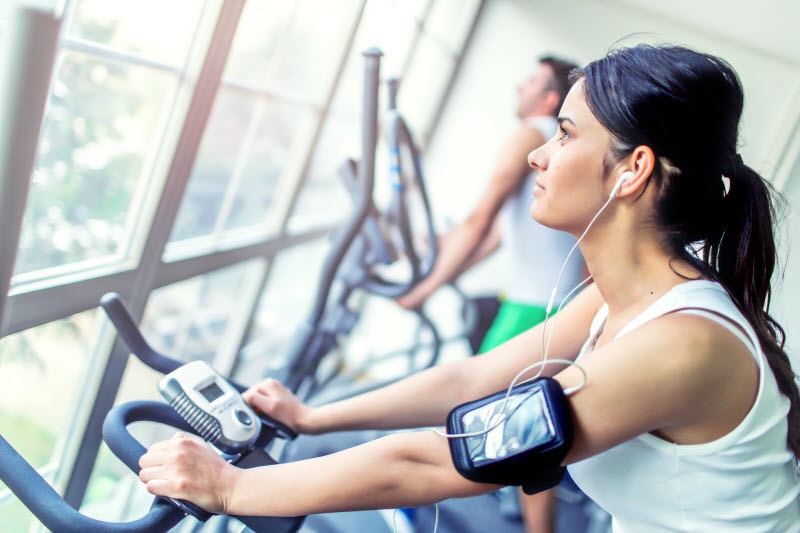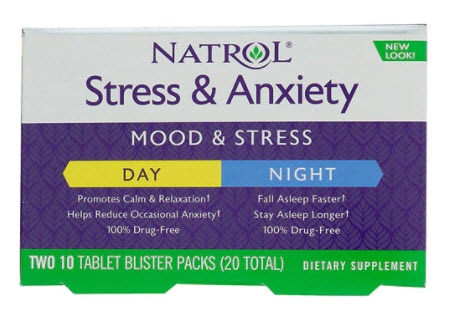An estimated 62 percent of Americans feel more anxious in 2020 than around the same time last year, according to the American Psychological Association. With all the stressors of these past several months, it’s no wonder anxiety is on the rise, but this mental health issue could become chronic or even immobilizing if not released through a healthy, constructive outlet.
In fact, untreated clinical anxiety is the sixth leading cause of disability across the globe, says Current Psychiatry Reports.
There are a number of ways to help alleviate the physical and mental effects of anxiety, aerobic exercise being one effective method. Research shows that just 2 to 2.5 hours per week of moderate to intense exercise can boost self-esteem and cognitive function, lower the risk of disease and manage stress, anxiety or depression, according to Frontiers in Psychology.
Whether you prefer to run, hike, cycle, swim, kickbox or do a HIIT circuit, here are some benefits exercise can provide for those times when you feel anxious.
Exercise and Anxiety: 3 Ways Moving More Benefits Mental Health
1. An increased heart rate strengthens your brain chemistry
Exercise can activate neurotransmitter chemicals such as dopamine, serotonin, gamma-aminobutyric acid, glutamate, acetylcholine and endocannabinoids which regulate your overall mood state, suggests Brain Plasticity.
In fact, this research indicates that 35 minutes of interval training at 80 percent of the body’s maximum heart rate will release those chemicals in the areas of the brain responsible for emotional stability and positive affect.
Even better, just six weeks of consistent aerobic exercise can reduce the impulse toward anxiety- or depression-related behaviors, fear-based responses and social avoidance.
Ease your anxiety: Build quick and easy aerobic exercise into your weekly routine and make a point to stick with it for at least six weeks to see if this alleviates your anxiety. A simple change can make all the difference in how you feel every day.
2. Being active can help manage physical symptoms of anxiety
Chronic anxiety impacts more than mental health—it also affects numerous functions in the body. Persistent anxious feelings can cause muscle tension, headaches, irregular sleep, cardiovascular strain, weakened immunity, high blood pressure, and intestinal pain, says the American Heart Association.
This is caused by an adrenaline release during anxious situations, which puts the body in a state of heightened stress. However, as the AHA also points out, exercise can relieve muscle soreness, enhance sleep, boost stamina and energy, lower heart disease risk, and regulate blood pressure, blood sugar and cholesterol levels.
Ease your anxiety: Create a workout routine you love and then check in with your doctor. You may have relieved your anxiety and helped boost your overall health, which in turn, can provide even more peace of mind.
3. Consistent exercise builds emotional resilience
Stress is an inevitable part of life, but the more resilient you are, the easier it will become to manage stress productively, so it doesn’t turn into anxiety or depression. Resilience is measured in terms of how you adapt to and recover from difficult situations, and research suggests that movement can increase this resilience.
In a study of participants with similar cortisol (stress hormone) levels, those who exercise on a regular basis tend to use healthy coping mechanisms and exhibit balanced, less reactive emotional responses despite the amount of stress in their lives, Frontiers in Psychology reports.
The idea is simple: if you exercise regularly, you can build your emotional resilience, making it easier to manage stress and anxiety when you feel it. We can’t eliminate stress, but we can find ways to make it easier to handle.
Ease your anxiety: Find a method of working out that you enjoy—so you’ll stick with it. Next time anxiety comes creeping in, take note of how it affects you, how long it lasts, and how your body responds. Over-time, you may notice these symptoms and signs get easier to spot and stick around for less time.
Fitness is just the first step to ease your anxiety
Exercise is an anxiety-reducing practice that often leads to other anxiety-reducing practices as well. In fact, those with acute or chronic anxiety who maintain a consistent workout regimen are more likely to prioritize all areas of their health and respond to medications and therapeutic interventions quicker than their sedentary counterparts says Dr. James Lake, integrative mental health practitioner.
Use fitness to ease your anxiety while building emotional resilience, keeping your whole body healthy, and creating healthy routines that support mental health in more ways than one.


